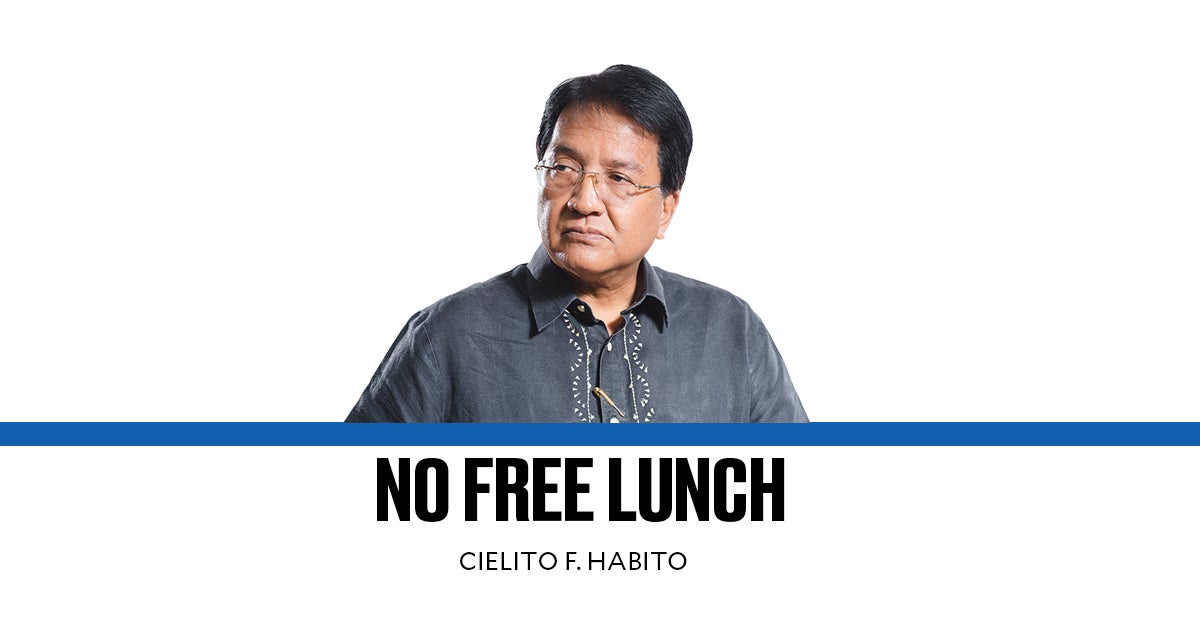Mayors for food security

More Filipinos are going hungry. The March 2025 hunger survey by the Social Weather Stations saw hunger jumping by an alarming six percentage points to 27.2 percent of all families from the previous month’s 21.2 percent, and seven points higher than last year’s average. It was the worst hunger since the record high 30.7 percent at the height of the COVID-19 pandemic in September 2020, rising for two consecutive months since January. It is highest in the Visayas, where one out of three families (33.7 percent) experienced hunger, a massive 13.7-point jump from February. Metro Manila has the next-worst hunger incidence at 28.3 percent.
Our usual economic indicators seem good: stabilizing prices (with inflation now below 2 percent), unemployment at historically low (below 4 percent), and aggregate income (gross domestic product) growing faster (5.4 percent) than most of our peers. But high and rising hunger levels do not paint an improving economy and rising welfare. It means worsening food security among Filipinos, and with our already high levels of severe malnutrition and child stunting relative to our neighbors, it foretells greater difficulties ahead in competing globally with an inferior workforce.
With newly elected leaders in our provinces, cities and municipalities, the spotlight must be on them if we are to reverse these alarming hunger trends. After all, hunger ultimately traces to failures in agriculture and food production, and by law, our local government units (LGUs) have been tasked since 1991 with helping our farmers raise their productivity. Similarly, ensuring that our malnourished young children are adequately fed is part of the government’s social welfare and public health services, both of which the Local Government Code of 1991 also devolved to LGUs. Thus, food security and nutrition is first the responsibility of our governors and mayors, more than the Department of Agriculture, Department of Social Welfare and Development, and Department of Health. Devolution means that these three are tasked with “steering the boat” through overall guidance and capacity-building, but it’s the LGUs that must do the “rowing.”
As new and returning local chief executives assume office on July 1, they must all take it to heart that in their own decisions and actions lie the prospects for improving the future of our country and the welfare of the Filipino people. I would enjoin them to do the prior homework of studying the examples set by other local governments elsewhere that have employed participatory planning and innovative social policies to profoundly improve their food systems and rural livelihoods.
The world’s poster city for zero hunger is Belo Horizonte in Brazil, which was among the first in the world to implement a comprehensive urban food security policy. In 1992, its mayor, Patrus Ananias, declared that food is a basic human right and that it is the government’s responsibility to guarantee that right. He institutionalized this by establishing the Municipal Secretariat for Food and Nutritional Security (Secretaria Municipal Adjunta de Segurança Alimentar e Nutricional or SMASAN), to coordinate policies and programs that ensure that every citizen has access to sufficient and nutritious food.
SMASAN runs a network of low-cost Restaurantes Popular (People’s Restaurants) accessible to the poor, offering inexpensive, balanced meals prepared from local farmers’ products. Even so, the restaurants, which feature a Brazilian pub’s ambience and even live music, attract all types of residents, thereby avoiding stigmatizing poor customers. A “Straight from the Field” program allows farmers to sell produce without intermediaries in 30 sales points in the city, ensuring a win-win outcome of fair prices for both producers and consumers. The city’s school feeding program prioritizes locally sourced, fresh, and organic foods, through which children not only receive healthy meals but are also educated on nutrition and sustainable food systems. The city also bid out to entrepreneurs the right to set up “ABC markets” (Alimentos a Baixo Custo—“food at low cost”) in choice city locations. They must sell 20 designated foods at below-market prices, but can sell everything else as they please. With their franchise privilege also comes the obligation to transport and offer surplus produce to poor neighborhoods outside the city center on weekends. And there is more.
Other cities like Detroit (USA), Kampala (Uganda), Havana (Cuba), and various Galing Pook Award winners here at home have similar initiatives that our mayors would do well to look up, study, and emulate. There is a wealth of good LGU practices that they need only copy and adapt to local conditions to stamp out hunger, achieve food security for their citizens, and provide stable and ample incomes for their farmers.


















